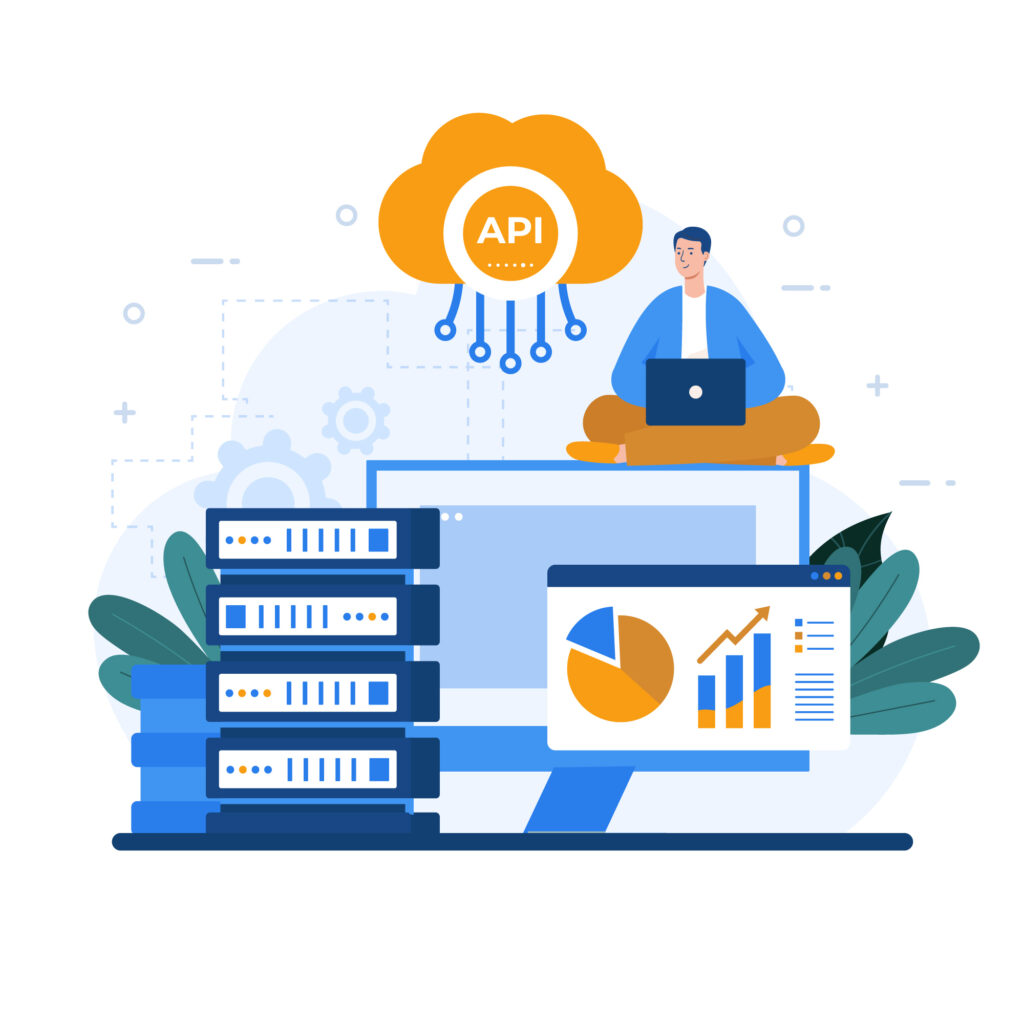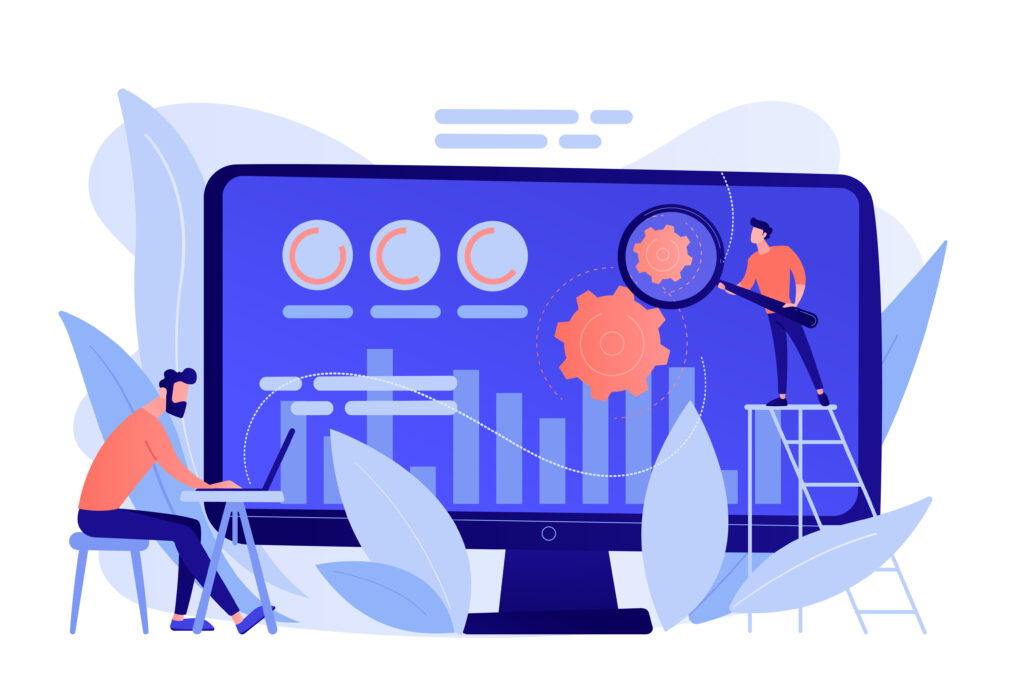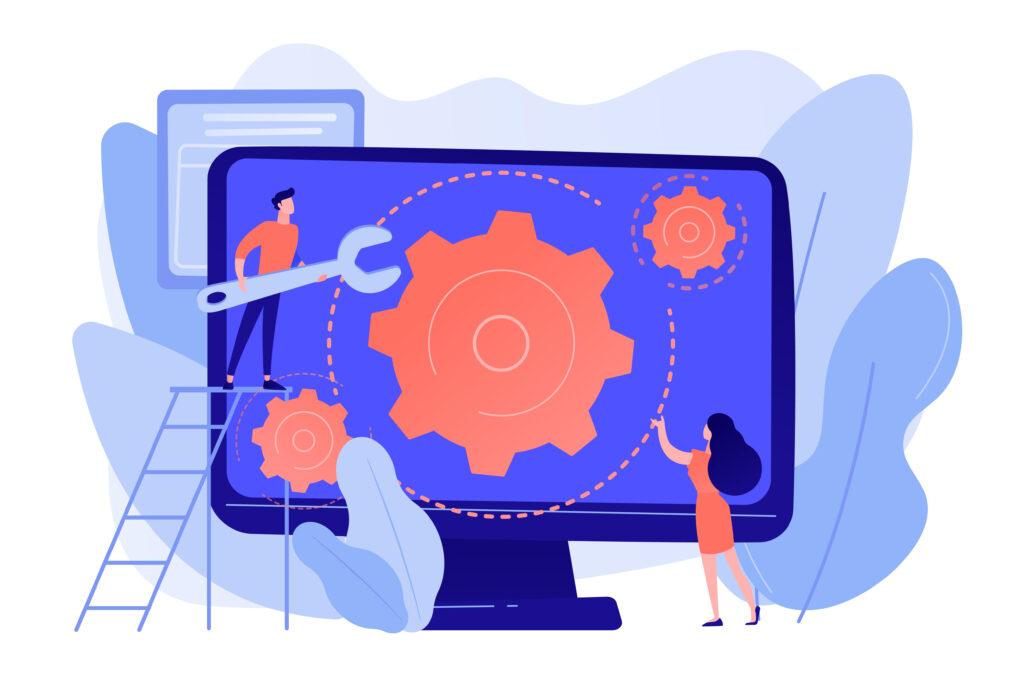ERP systems help businesses manage everything from inventory and finance to human resources and customer relationships. In particular, the ERP developer plays a critical role in ensuring these ERP systems function smoothly and securely. So who are ERP developers? What do they do and how to become ERP Developer? Find out with Levinci now!
Who is an ERP developer?
An ERP developer is a programmer with a specific skillset geared towards the UI/UX, development, and maintenance of Enterprise Resource Planning (ERP) systems.
ERP system is the lifeblood of many businesses, acting as a central hub for managing essential functions like finance, inventory, human resources, project management, and customer relationships.

ERP developers work closely with clients to understand their business needs and requirements, and then configure or customize the ERP software to meet those needs. They play a crucial role in ensuring that ERP systems are properly implemented, optimized for efficiency, and aligned with the organization’s objectives.
Learn more What is ERP (Enterprise Resource Planning) system and why should businesses need it?
The role of an ERP developer
An ERP developer wears many hats to keep this complex system running efficiently and securely. Here’s a closer look at their key responsibilities:
Database management

Besides having deep knowledge of UI/UX and implementation, an ERP developer is the guardian of the ERP system’s data. They write queries to retrieve and manipulate data for reports, analytics, and other functionalities within the ERP system. Additionally, ERP developers ensure fast retrieval times and efficient data storage to keep the system responsive.
Performance optimization

A well-functioning ERP system will help businesses manage and operate better. Therefore, to maintain the ERP system operating smoothly, ERP developers need to constantly monitor and analyze the performance of the ERP system to identify and address any bottlenecks or inefficiencies.
They can implement many tasks such as code optimizations, database tuning techniques, and system resource management strategies to ensure optimal speed and efficiency.
System Integration
An ERP system rarely operates alone and is often connected to several other systems such as CRM (Customer Relationship Management) Systems or SCM (Supply Chain Management) System. This combination will help ensure a seamless data flow, minimizing errors and complex manual data entry operations.
Therefore, ERP developers need to implement integrated solutions using web services, APIs, middleware, etc. to facilitate seamless data exchange and process automation between different systems.
Testing and debugging
Before any new features or functionalities are deployed, rigorous testing is essential. Developers write and execute test cases to identify and fix bugs to ensure a stable and reliable system. Specifically, unit testing, integration testing, regression testing, performance testing, etc.
Then, ERP developers debug and fix problems in the database or system configuration to resolve issues and ensure smooth operation of the ERP system. They may also be involved in working with end-users to ensure the system meets their needs and expectations.
Upgrades and maintenance
Because ERP systems require regular updates, patches, and enhancements, Developers stay updated on the latest ERP releases and manage the upgrade process, ensuring a smooth transition with minimal disruption to business operations.

In addition, upgrading the ERP system will help increase its suitability for business development when there are changes in personnel size, data, management and operational processes, etc.
They also perform regular maintenance tasks like data backups, security patches, and troubleshooting any issues that arise after deployment.
Security Compliance
Developers play a vital role in ensuring the system’s security by implementing robust security measures like access controls, data encryption, and vulnerability management protocols.
They also need to be aware of industry regulations and ensure the ERP system complies with relevant data privacy laws.
Some important skills to become an ERP developer
An ERP developer needs a blend of technical and soft skills to thrive in this multifaceted role. Here’s a breakdown of some crucial skills to develop:

- Programming Languages: Familiarity with languages commonly used in ERP development is essential. This could include Java, ABAP (SAP), SQL, Python, or specific scripting languages depending on the chosen ERP platform.
- Databases: A strong understanding of database management systems (DBMS) like Oracle, SQL Server, or DB2 is necessary for data manipulation, querying, and optimization within the ERP system.
- Problem-Solving: ERP systems deal with complex business processes. Excellent problem-solving skills are needed to identify, analyze, and troubleshoot issues that may arise.
- Analytical Thinking: ERP data can provide valuable business insights. Analytical skills allow developers to interpret data and translate it into actionable reports or visualizations for informed decision-making.
- Communication: Effectively communicating with technical and non-technical audiences is essential. Developers need to explain complex technical concepts to business users and collaborate with other IT professionals.
- Creative thinking and ability to learn: Because technology and business requirements change continuously, ERP developers need to have creative thinking to come up with new solutions and the ability to continuously learn to update the latest knowledge.
Conclusion
ERP developer is the backbone of a successful ERP implementation. Their expertise ensures that the system functions optimally, provides valuable insights for decision-making, and keeps business data secure. If you want to implement complete ERP Systems for your business, don’t hesitate to contact Levinci today!
Learn more about

